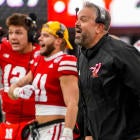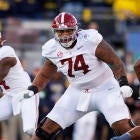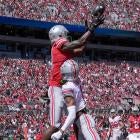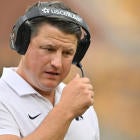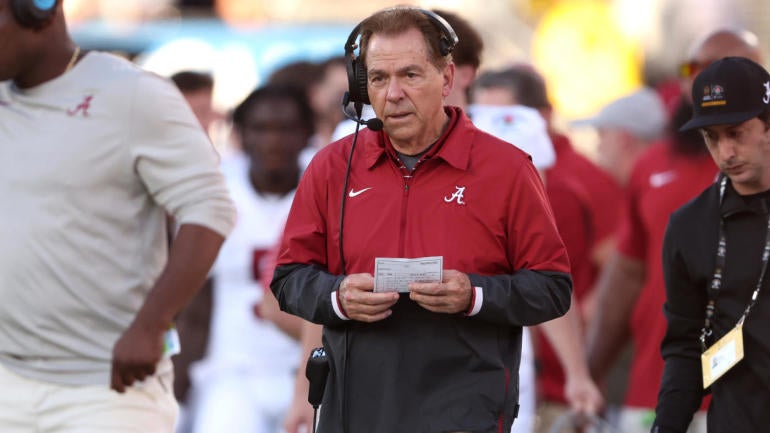
Former Alabama coach Nick Saban knew a while ago that his time with the program was coming to an end. The 72-year-old Crimson Tide legend confirmed in a recent interview with ESPN that he began contemplating retirement shortly after the 2022 season and told athletic director Greg Byrne that he felt his coaching career was nearing an end.
To everyone else, Saban's decision to step away on Jan. 10 -- just nine days after Alabama's loss to Michigan in the Rose Bowl -- came as a surprise. Though it wasn't the Rose Bowl loss, or anything that followed, that served as a catalyst for Saban's retirement, he recalled sobering moments involving his team after their College Football Playoff run fell short.
"I want to be clear that wasn't the reason, but some of those events certainly contributed," Saban told ESPN. "I was really disappointed in the way that the players acted after the game. You gotta win with class. You gotta lose with class. We had our opportunities to win the game and we didn't do it, and then showing your ass and being frustrated and throwing helmets and doing that stuff ... that's not who we are and what we've promoted in our program."
Alabama made its way back to Tuscaloosa, where Saban met with several members of the team to reflect on the season and take a look at steps forward. Saban recalled that a majority of his players were worried about an increased role on the team or financial gain through NIL initiatives, with talk of the transfer portal looming as a sort of leverage:
"I thought we could have a hell of a team next year, and then maybe 70 or 80 percent of the players you talk to, all they want to know is two things: What assurances do I have that I'm going to play because they're thinking about transferring, and how much are you going to pay me?" Saban recounted. "Our program here was always built on how much value can we create for your future and your personal development, academic success in graduating and developing an NFL career on the field.
"So I'm saying to myself, 'Maybe this doesn't work anymore, that the goals and aspirations are just different and that it's all about how much money can I make as a college player?' I'm not saying that's bad. I'm not saying it's wrong, I'm just saying that's never been what we were all about, and it's not why we had success through the years."
Saban said he also struggled with coaching churn and the need to almost constantly replace assistants. Meetings with prospective coaches became difficult as he couldn't accurately promise that he would be around the program beyond a handful of seasons.
His decision to step away from a game that will never forget him caused ripples far outside the state of Alabama, but it also became one of many similar stories heard during the wildest coaching carousel in recent memory. Names like Jim Harbaugh, Jeff Hafley and Chip Kelly left for other jobs for their own unique reasons, but the changing college football landscape has undeniably added to the coach's responsibility list.
Even Saban's replacement, Kalen DeBoer, added to that late coaching carousel by adding South Alabama's Kane Wommack as his defensive coordinator and Buffalo's Maurice Linguist as cornerbacks coach. South Alabama and Buffalo turned to Major Applewhite and South Carolina assistant Pete Lembo, respectively, to fill their coaching vacancies and bring to an end the six changes that stemmed from Saban's retirement.















